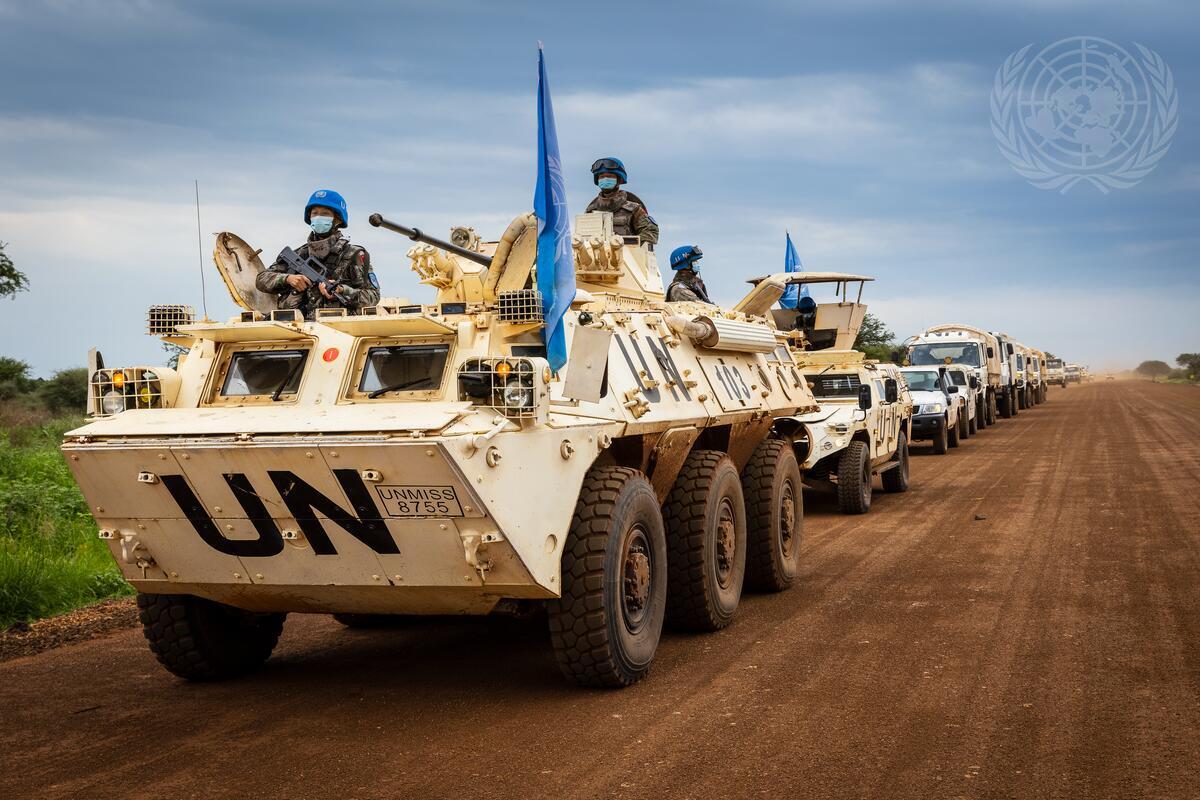South Sudan: UN Mission urges all parties to respect the peace agreement as the crisis intensifies

South Sudan plunged into conflict shortly after its 2011 independence from Sudan. The war erupted between the government forces under President Salva Kiir and fighters loyal to his rival, Riek Machar, who has held the position of First Vice President in a broad coalition government since 2020. Characterized by ethnic violence, mass atrocities, and a severe humanitarian crisis, the war continued until a fragile peace agreement in 2018.
As of April 2025, South Sudan political tension has intensified, leaving the nation at a risky crossroads. The rise of political tension is threatening the already fragile peace deal in a nation already marked by a deepening humanitarian crisis.
The Special Representative of the UN Secretary-General for South Sudan, Nicholas Haysom, informed that the political tie between President Salva Kiir and former First Vice President Riek Machar has now degenerated into direct military confrontation, jeopardizing the already delicate peace, as the two are the main signatories to the 2018 Revitalized Peace Agreement.
Reports of a new mobilisation by the White Army militia and South Sudan People’s Defence Forces (SSPDF) in Upper Nile state, with the supposed recruitment of children, and the deployment of Ugandan forces at the government’s request, are increasing the precarity of the situation. At the same time, misinformation and hate speech are contributing to exacerbate ethnic tension. Mr. Haysom urges to “avert a relapse into full-scale conflict, refocus efforts on accelerating the implementation of the Agreement, and advance the transition towards South Sudan’s first democratic elections.”
Meanwhile, the humanitarian situation is devastating, with over nine million people in need of humanitarian assistance and protection, including two million internally displaced persons.
Civilians in the affected area are facing daily indiscriminate killing, injury, and mistreatment, with civilian infrastructure frequently targeted. At the same time, armed groups are targeting rural villages and insecurity has made delivery of aid and commercial goods nearly impossible, leading to critical shortages and a near doubling of food prices in just three months.
UNICEF noted that malnutrition is rife. More than 457,000 children in North Darfur are acutely malnourished, including nearly 146,000 who are suffering from severe acute malnutrition (SAM). Additionally, six localities within the state are at risk of famine. The surge in fighting is putting children at grave risk of killing, sexual violence and recruitment into armed groups. UNICEF reports that in El Fasher, North Darfur, over 70 children have been killed or maimed in under three months, with intense shelling and airstrikes in the Zamzam IDP camp accounting for a significant portion of these casualties. An estimated 900,000 people remain in El Fasher, and 750,000 in Zamzam camp, trapped by active conflict. Half are children.
The United Nations Mission in Sudan (UNMISS), headed by Mr. Haysom, calls on all sides to immediately stop fighting and engage in constructive dialogue that prioritizes the well-being of the South Sudanese people at this critical juncture. Furthermore, he pressed the Security Council to support various processes needed to calm the tension, especially in the Nasir region of Upper Nile state, the following of the ceasefire and the release of detained officials.

